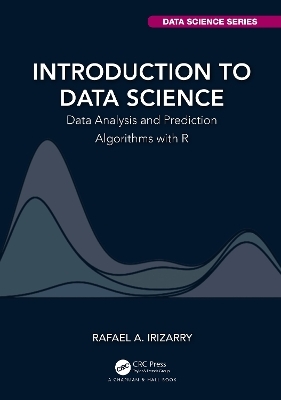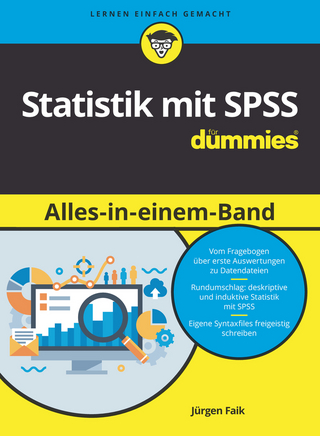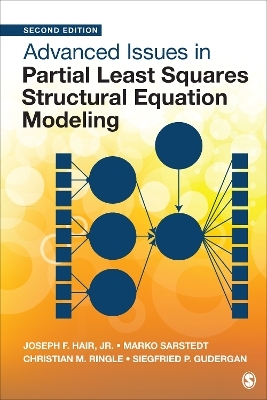
Introduction to Data Science
Chapman & Hall/CRC (Verlag)
978-0-367-35798-6 (ISBN)
- Titel ist leider vergriffen;
keine Neuauflage - Artikel merken
Introduction to Data Science: Data Analysis and Prediction Algorithms with R introduces concepts and skills that can help you tackle real-world data analysis challenges. It covers concepts from probability, statistical inference, linear regression, and machine learning. It also helps you develop skills such as R programming, data wrangling, data visualization, predictive algorithm building, file organization with UNIX/Linux shell, version control with Git and GitHub, and reproducible document preparation.
This book is a textbook for a first course in data science. No previous knowledge of R is necessary, although some experience with programming may be helpful. The book is divided into six parts: R, data visualization, statistics with R, data wrangling, machine learning, and productivity tools. Each part has several chapters meant to be presented as one lecture.
The author uses motivating case studies that realistically mimic a data scientist’s experience. He starts by asking specific questions and answers these through data analysis so concepts are learned as a means to answering the questions. Examples of the case studies included are: US murder rates by state, self-reported student heights, trends in world health and economics, the impact of vaccines on infectious disease rates, the financial crisis of 2007-2008, election forecasting, building a baseball team, image processing of hand-written digits, and movie recommendation systems.
The statistical concepts used to answer the case study questions are only briefly introduced, so complementing with a probability and statistics textbook is highly recommended for in-depth understanding of these concepts. If you read and understand the chapters and complete the exercises, you will be prepared to learn the more advanced concepts and skills needed to become an expert.
A complete solutions manual is available to registered instructors who require the text for a course.
Rafael A. Irizarry is professor of data sciences at the Dana-Farber Cancer Institute, professor of biostatistics at Harvard, and a fellow of the American Statistical Association. Dr. Irizarry is an applied statistician and during the last 20 years has worked in diverse areas, including genomics, sound engineering, and public health. He disseminates solutions to data analysis challenges as open source software, tools that are widely downloaded and used. Prof. Irizarry has also developed and taught several data science courses at Harvard as well as popular online courses.
I R. 1 Installing R and RStudio. 2. Getting Started with R and RStudio. 3. R Basics. 4. Programming basics. 5. The tidyverse. 6. Importing data. II Data Visualization. 7. Introduction to data visualization. 8. ggplot2. 9. Visualizing data distributions. 10. Data visualization in practice. 11. Data visualization principles. 12. Robust summaries. III Statistics with R. 13. Introduction to Statistics with R. 14. Probability. 15. Random variables. 16. Statistical Inference. 17. Statistical models. 18. Regression. 19. Linear Models. 20. Association is not causation. IV Data Wrangling. 21. Introduction to Data Wrangling. 22. Reshaping data. 23. Joining tables. 24. Web Scraping. 25. String Processing. 26. Parsing Dates and Times. 27. Text mining. V Machine Learning. 28. Introduction to Machine Learning. 29. Smoothing. 30. Cross validation. 31. The caret package. 32. Examples of algorithms. 33. Machine learning in practice. 34. Large datasets. 35. Clustering. VI Productivity tools. 36. Introduction to productivity tools. 37. Accessing the terminal and installing Git. 38. Organizing with Unix. 39. Git and GitHub. 40. Reproducible projects with RStudio and R markdown.
| Erscheinungsdatum | 23.10.2019 |
|---|---|
| Reihe/Serie | Chapman & Hall/CRC Data Science Series |
| Sprache | englisch |
| Maße | 178 x 254 mm |
| Gewicht | 1720 g |
| Themenwelt | Mathematik / Informatik ► Mathematik ► Computerprogramme / Computeralgebra |
| Naturwissenschaften ► Biologie | |
| ISBN-10 | 0-367-35798-4 / 0367357984 |
| ISBN-13 | 978-0-367-35798-6 / 9780367357986 |
| Zustand | Neuware |
| Informationen gemäß Produktsicherheitsverordnung (GPSR) | |
| Haben Sie eine Frage zum Produkt? |
aus dem Bereich


